What is Tableau Next?
An introduction to Tableau Next, the newly released analytics platform from Tableau.

In June 2025, Tableau introduced Tableau Next, a next-generation analytics platform. Along with it, Tableau also launched Tableau+, a premium subscription package for Tableau Cloud that includes the new platform.
This new product family appears to reflect strong influence from Salesforce, which acquired Tableau, and seems to signal a broader move to bring Tableau users closer to the Salesforce ecosystem.
So what exactly is Tableau Next? Let’s take a look at its key features.
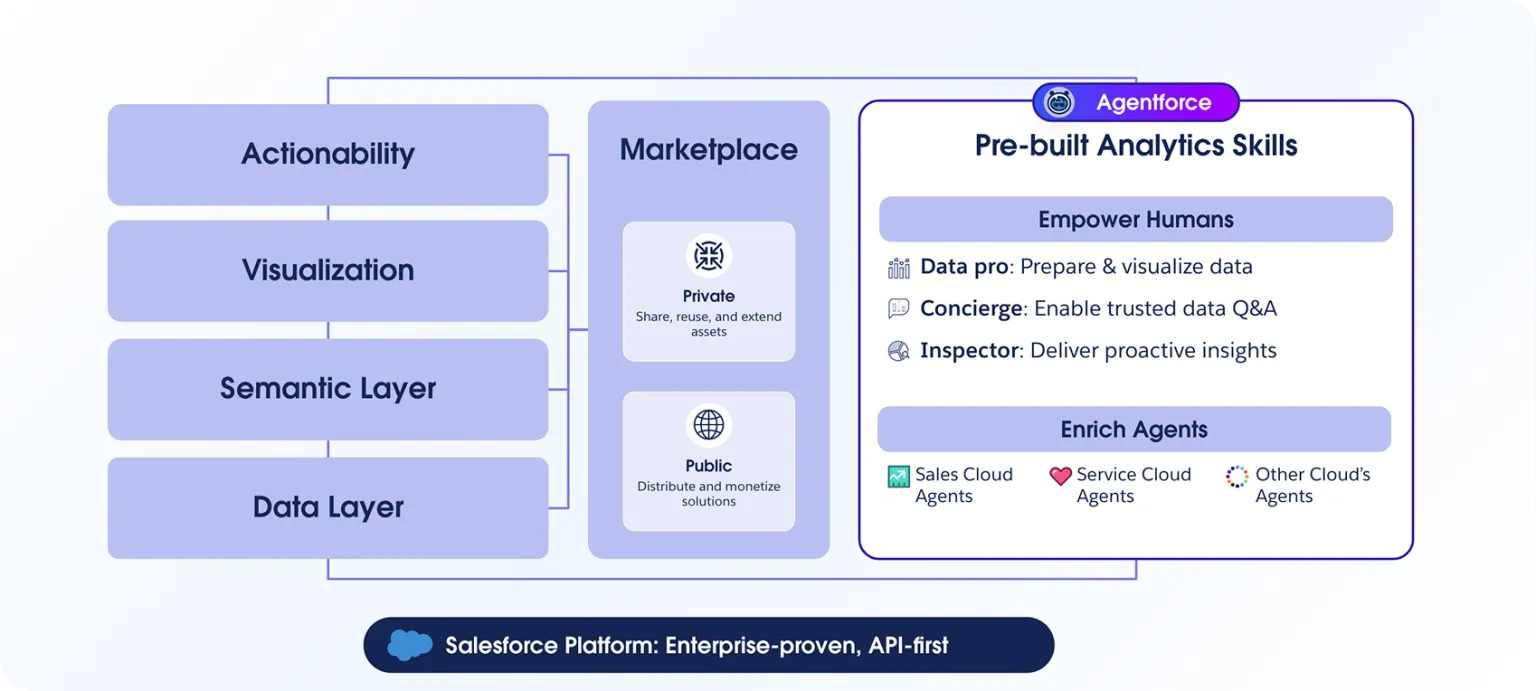
Built on the Salesforce Platform
Unlike the previous Tableau Cloud, Tableau Next runs natively on the Salesforce Platform. To use it, users must set up a Salesforce organization and configure Salesforce Data Cloud as part of their environment.
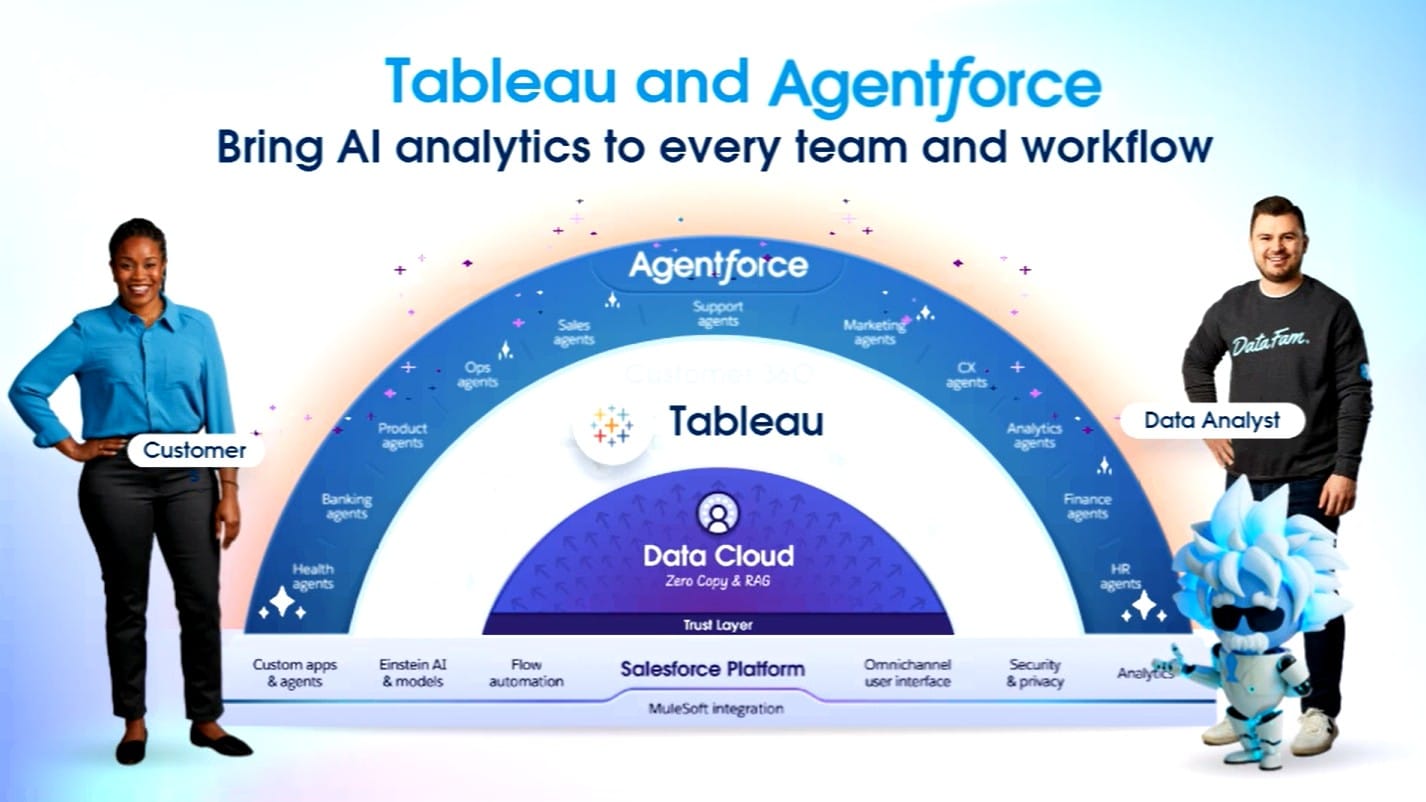
Even if you don’t use any other Salesforce products, you can still use Tableau Next — however, the underlying infrastructure is based on Salesforce.
Integrated with Agentforce, Salesforce’s AI Agent
In Tableau Next, the AI assistant is no longer called Tableau Agent (formerly Einstein Copilot) but is now introduced as Agentforce, the AI agent from Salesforce Platform.
Functionally, there’s no difference — only the naming reflects the deeper integration.
In most cases, users can access it through the Agentforce button in the upper-right corner of the interface and interact with it using natural language to receive assistance.
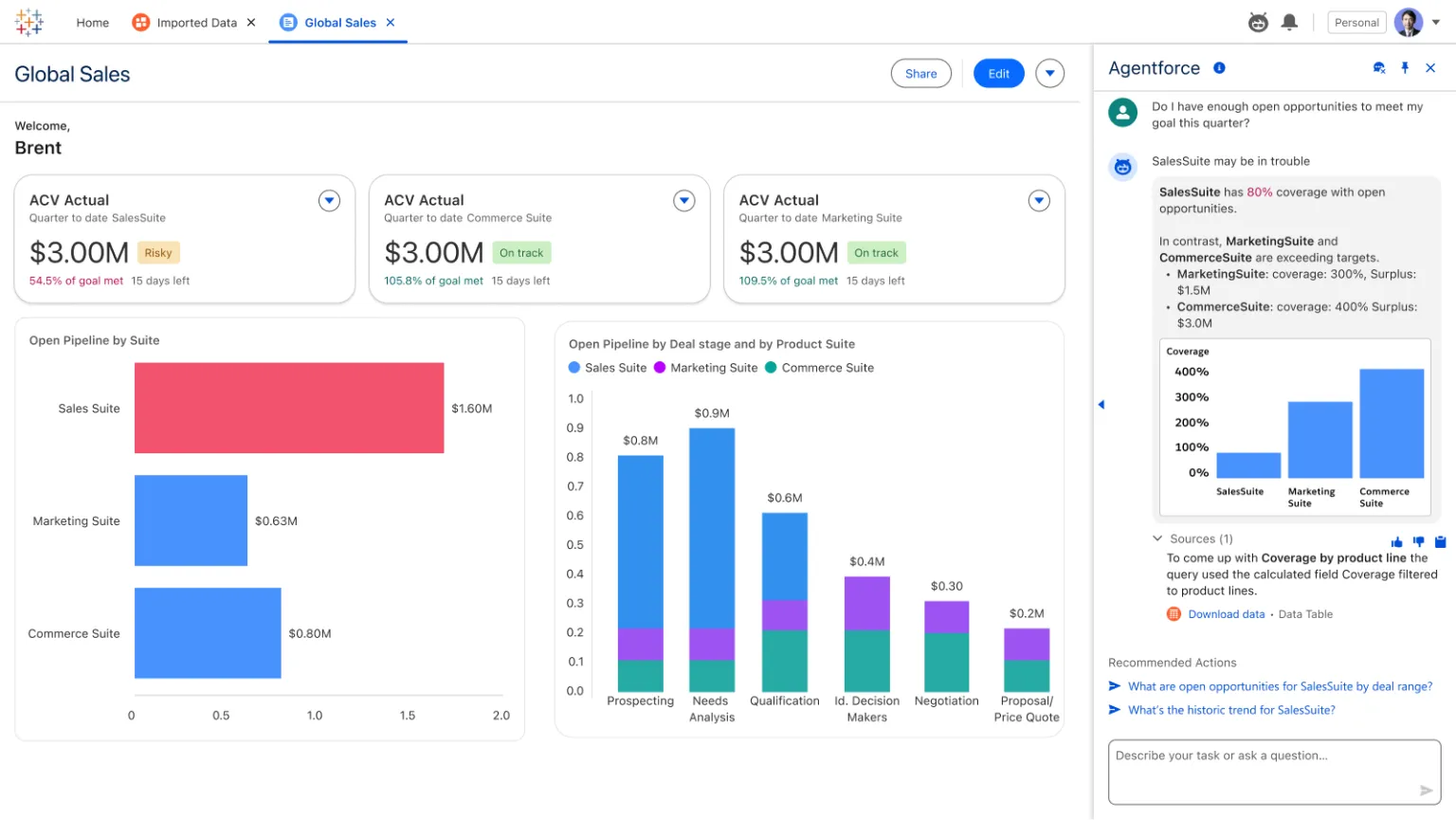
Enhanced Semantic Layer with Tableau Semantics
Tableau Semantics is a new layer that sits on top of your source data and Tableau Prep flows, and defines the model used for final visualizations.
It is designed to prevent inconsistencies and inaccuracies that arise when different users interpret the same data in different ways.
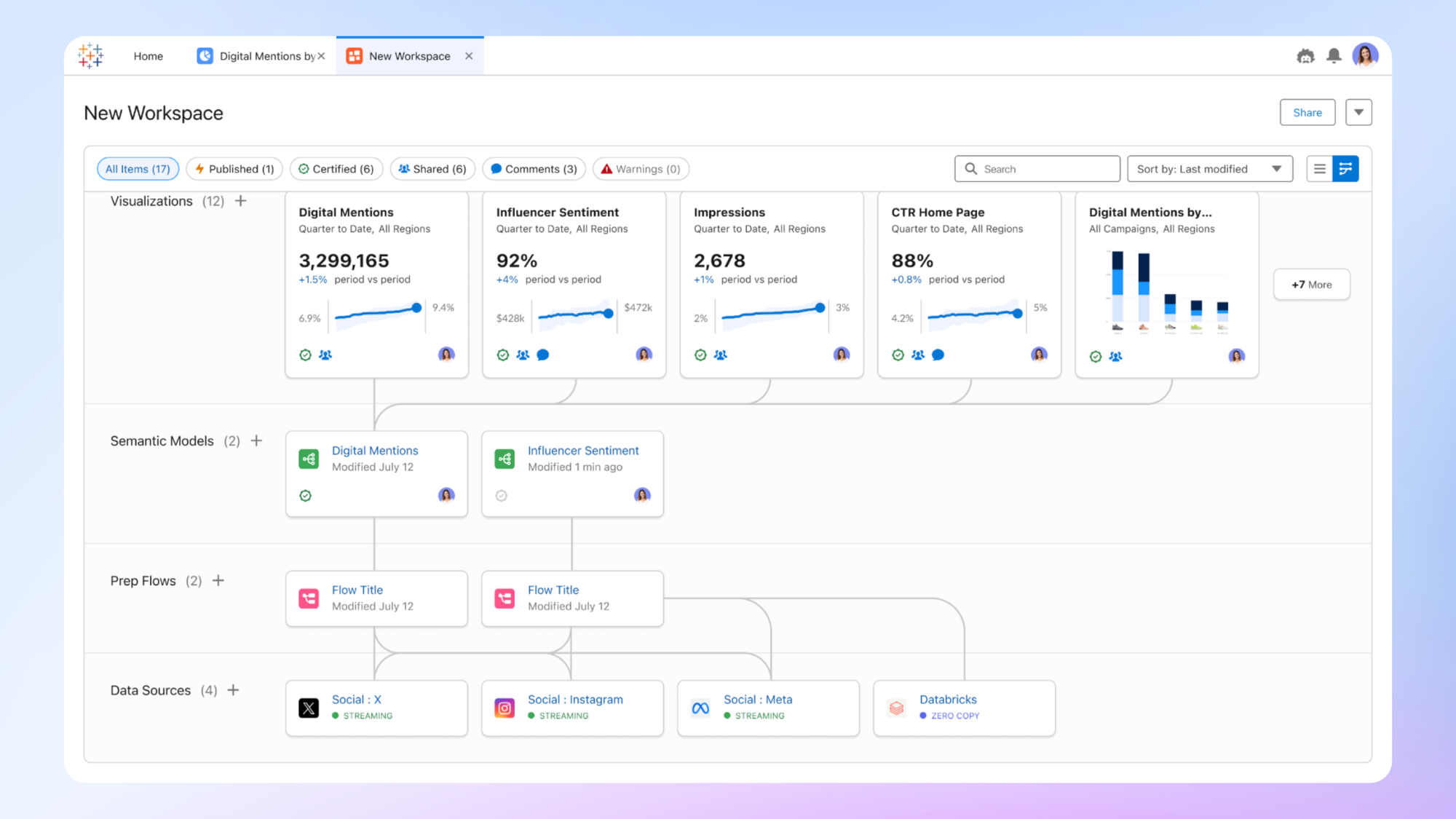
Users can also interact with Agentforce within the Tableau Semantics layer, which supports features like:
- Suggested relationships
- Automatic calculation generation
- Auto-generated semantic models
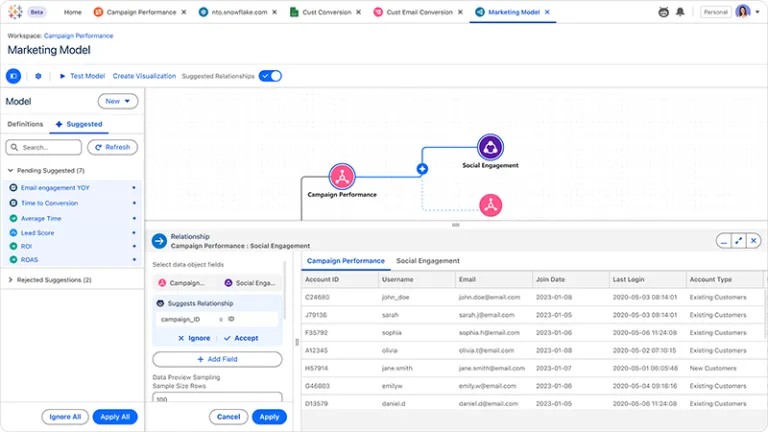
Greater Asset Efficiency via Tableau Marketplace
To make it easier for users to build analytics faster by leveraging content developed by others, Tableau plans to introduce a Marketplace where dashboards, data models, and other analytical assets can be shared or monetized.
While details are still forthcoming, the marketplace is expected to be an expansion of Tableau Public, with added support for IP protection and privacy control, enabling creators to generate revenue from their published assets.
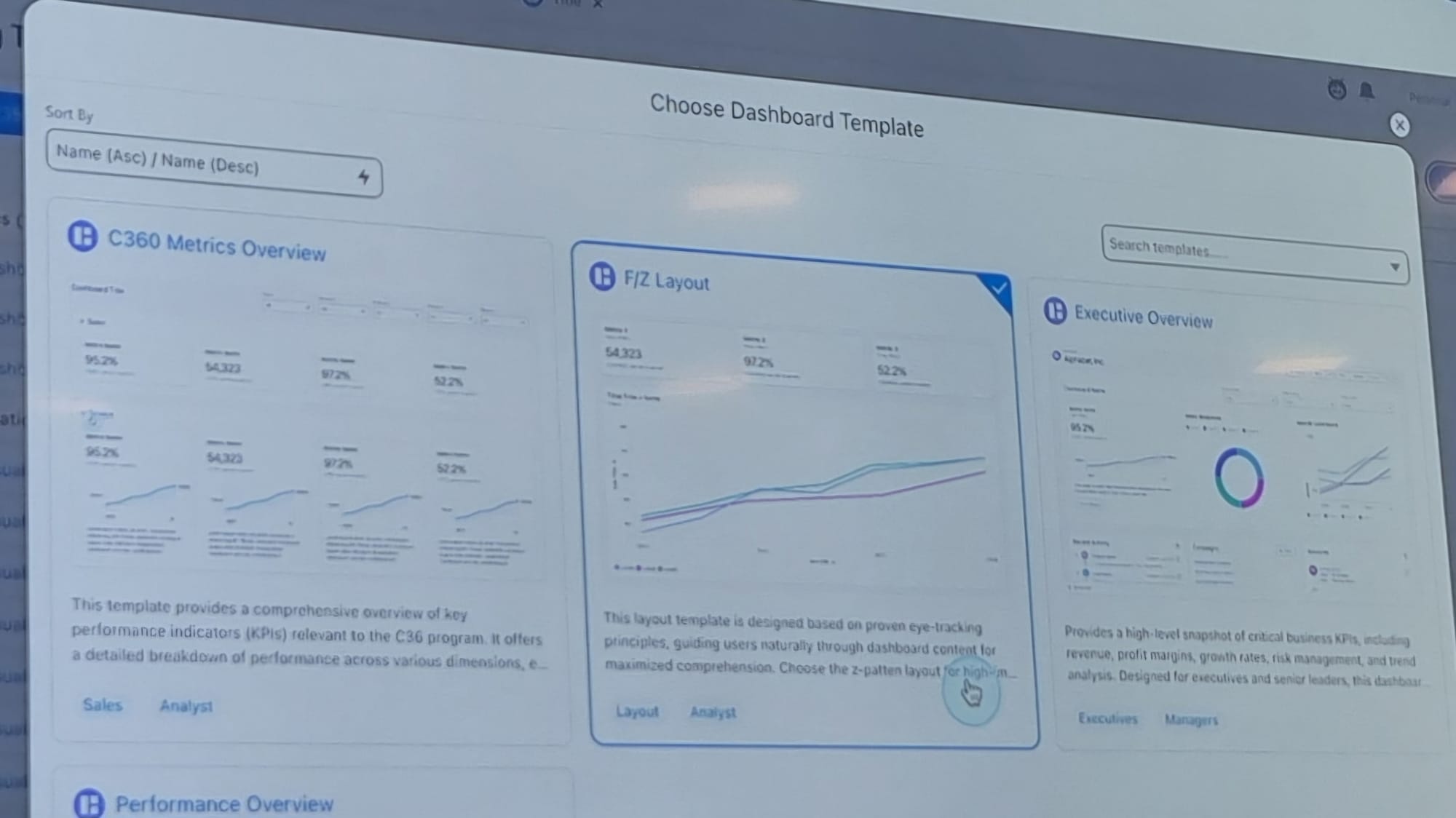
Note:
This post is based on information from the official Tableau website, blog content, and sessions from the Agentforce World Tour Korea event, and is subject to change as further updates are released.



